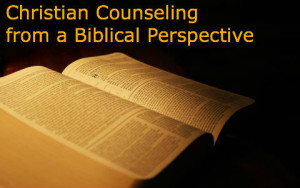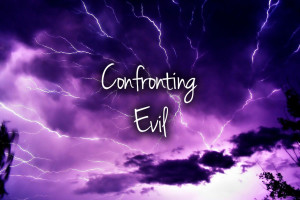 A friend of mine, who is a clergyman, was telling me about a recent visit to hospital for an operation. While he was recovering on the ward, one of the nurses noticed that he had the title Reverend on his notes. She immediately shared with him the information that she was also a practising Christian. He listened as she explained about her membership of a local Pentecostal church in the area. She shared with him her great love of the Bible. She had discovered, as she put it, how many of the world’s problems were to be found in the pages of Scripture. The prophecies of the past were all being fulfilled in today’s terrible events. It soon became apparent that her reading of the Bible and her understanding of its relevance for today’s problems was almost entirely based on one single book, the book of Revelation.
A friend of mine, who is a clergyman, was telling me about a recent visit to hospital for an operation. While he was recovering on the ward, one of the nurses noticed that he had the title Reverend on his notes. She immediately shared with him the information that she was also a practising Christian. He listened as she explained about her membership of a local Pentecostal church in the area. She shared with him her great love of the Bible. She had discovered, as she put it, how many of the world’s problems were to be found in the pages of Scripture. The prophecies of the past were all being fulfilled in today’s terrible events. It soon became apparent that her reading of the Bible and her understanding of its relevance for today’s problems was almost entirely based on one single book, the book of Revelation.
I tell this anecdote is a way of illustrating the extraordinary way that Christianity as practised today in our world is divided into groups which seem to have very little possibility of communicating or understanding each other. How does one begin to talk to a Christian who only knows this one somewhat eccentric part of Scripture? In the nurse’s particular church there seems to have been little interest in the teaching of Jesus, the theology of St Paul or the story of the spread of the Christian church in Acts. Everything was apparently based on what we would consider the more lurid passages of the book of Revelation which speak of destruction and disasters. We do not of course know whether the a preaching focus on this particular book was a temporary thing or, as I suspect, part of a long-term obsession. The minister was out to present a version of Christianity which, like the book of Revelation was full of drama, violence and events that would help to make his preaching highly colourful We only have our speculations to go on but, to judge from some of the material I have encountered in books from the States, our surmises are not without foundation. In the first place an obsession with the book fits in with a version of Calvinism which is highly pessimistic about the state of the world. Thus the preaching would have revelled in all the talk of destruction, battles and the final defeat of God’s enemies at the end of time. Although the book does possess passages of great beauty, we cannot ignore the fact that there is also a great deal of violence in this particular book. If this particular Pentecostal minister was indeed using this book of Revelation as the main source for his Christian teaching, then I believe he could be accused of feeding his congregation on a diet of what is effectively religious pornography.
It is not for me to offer a ‘liberal’ commentary on the book of Revelation at this point, but I would ask my reader to consider what might be the consequences for their Christian faith if this were the only book of the Bible being studied or considered. I am going to speculate that the choice of this book would allow a preacher, not only to preach in a very dramatic and colourful way, but also to increase his power and control over his congregants. How might this work? In the first place I am suggesting that anyone who is drawn to be obsessive about Revelation is likely to become a victim to two parallel but conflicting emotions. Neither of these, I hasten to add, are especially healthy or good. The first emotion is one we have met many times before in this blog – the experience of abject fear. All the descriptions of what God is going to do to those who do not follow him are spelt out in vivid detail in the book. The costs of not being on God’s side are frankly terrifying. The member of a congregation who is preached at by someone listing all the awful punishments awaiting the disobedient is not going to realise that the same Bible also offers a gentler more compassionate God in other parts. No, the preacher thunders, all these punishments await you or anyone else who strays from the straight and narrow, from the salvation that this particular church is able to offer. If you betray this church, you betray God and will have to face the consequences. This is God’s infallible word. I opened Revelation at random and read in chapter 16: ‘ There followed flashes of lightening and peals of thunder and a violent earthquake like none before it in human history, so violent it was…. The cities of the world fell in ruin ….Huge hailstones, weighing perhaps a hundredweight, fell on men from the sky; and they cursed God for the plague of hail.’ A listener who accepts that every word in Scripture is the infallible word of God would hear such words with a frisson of terror.. This is only one random passage and there are plenty more which can be relied upon to terrify the susceptible listener or reader.
The stirring up of fear in a congregation eventually becomes counter-productive so that a preacher needs to offer hope and assurance. While these emotions are of course positive there is also a particular sensation which a preacher can easily arouse which will also to some extent assuage the Calvinist-inspired state of terror. I refer to the feeling which the German language describes as ‘Schadenfreude’. This is the delight in the punishment of others. This emotion is not a worthy one but the evoking a sense of smug complacency that God is going to bring about terrible destruction of those he does not approve of is a powerful potential weapon for a preacher. It is hard not to feel that the writer of Revelation himself was feeling such emotions when you read the descriptions of all that the seven angels in chapter 16 do to activate the outpouring of God’s wrath. Such unfortunate individuals are covered with malignant sores, some burnt alive and others allowed to die of thirst. The temptation to encourage the members of a congregation to join in such a triumphant sense of God’s triumphant vindication of his power over those who oppose must be little short of irresistible.
My reader may begin to understand how a focus on the book of Revelation in one particular church in the Midlands could be thoroughly unhealthy. By creating in the hearer a combination of fear with an equal dose of enjoyment at a future punishment for the people who are identified as an ‘enemy’, the preacher has created a toxic environment. In encouraging such a pathological atmosphere he is assisted by a plethora of books that have been written in the past thirty years by such people as Hal Lindsey and Tim Lahaye which peddle some highly questionable ideas about the End Times. Fortunately I have never had to listen to such a sermon which links the justice and goodness of God with terrible, eternal suffering for those who do not accept him. But there is enough in the literature to suggest the are many Christians who have allowed the eternal punishment for those who do not agree with you, to become an obsessional preoccupation.
Reading the book of Revelation in isolation from the rest of Scripture is at the very least likely to create severe distortion of the Christian message. At its worst it can create a cruel, abusive environment which evokes fear in the hearer and encourages him/her to exult in the punishment of the perceived enemies of God. Over the centuries the book has caused problems for Christian commentators with the result that it is now often ignored. When main-stream Christians are ignorant about the book, less orthodox Christians on the fringes are left to use it in a variety of illegitimate ways. It is worth recording that the destructive Adventist group led by David Koresh was riveted by his speculations about Revelation. The complete ignorance of the book on the part of the negotiators with Koresh was part of the reason for the breakdown of communication and the subsequent tragic death of 80+ victims at Waco. We need to read the book again but must not allow doctrines of verbal infallibility to cloud our judgement of its relevance to our situation today..








